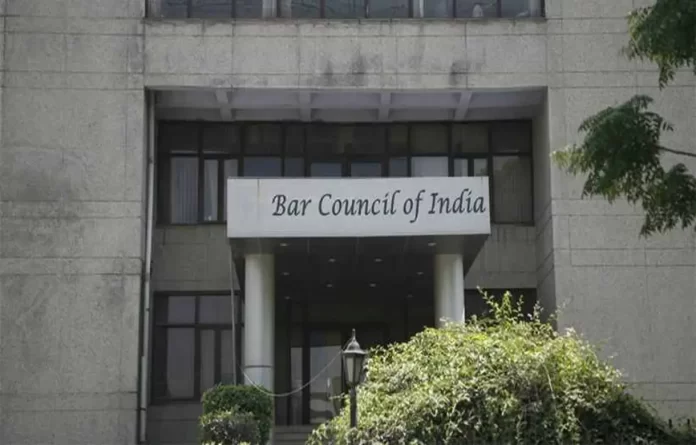The Bar Council of India has written to all university vice chancellors raising concerns about the rise in the number of low quality law colleges in India. The Bar Council urged the vice chancellor to conduct thorough inspections before granting No Objection Certificate (NOCs) for new legal education centres.
The BCI noted that while they play a regulatory role, universities and government bodies must also be actively involved in ensuring quality education. The letter also highlighted the need for collaboration to prevent the growth of substandard law colleges.
It further added that it is crucial to recognize the pivotal roles played by both the state government and the universities in addressing the mushroom growth/proliferation of substandard law colleges. It mentioned that the foundation of tackling this issue lies in the groundwork carried out by the state government’s Higher Education Department and the Universities, which serve as the grassroots entities responsible for regulating educational standards.
The BCI’s letter pointed out that despite its collective efforts, the Council continues to face significant challenges posed by the mushroom growth and proliferation of substandard law colleges.
In the letter, the BCI also suggested some procedures, criteria and guidelines for consideration and grant of NOCs. The BCI suggested universities conduct a comprehensive survey to assess the demand for legal professionals in the region. It added that factors to consider include population demographics, legal infrastructure, demand for legal professionals, and employment opportunities for law graduates.
It also asked the universities to assess the financial viability of the proposed center, including funding sources, fee structure, and sustainability plans and verify the availability of funds for infrastructure development, faculty salaries, and other operational expenses. It also said to specify the documentation required for NOC application, which may include detailed project proposals, financial statements, infrastructure plans, etc.
Furthermore, it also asked to establish a transparent and time-bound review process for NOC applications and designate a committee or regulatory authority responsible for evaluating applications and making recommendations based on the above criteria. It also suggested ensuring that decisions are communicated to applicants promptly and include reasons for approval or rejection.
It further asked to evaluate the center’s plans for providing legal aid to the community and integrating clinical legal education into the curriculum. It also asked to emphasize on the importance of hands-on learning experiences through internships, moot court competitions, and legal clinics.
The letter also underlined that expressing grave concern over the rampant proliferation of law colleges nationwide, the General Council of the Bar Council of India had taken decisive action by passing resolution No. 114/2015 dated 06.06.2015, which unequivocally urged all state governments and universities to impose restrictions on the issuance of No Objection Certificates (NOCs) and affiliations for a period of three years.
The letter mentioned that despite this resolute decision and the subsequent issuance of circulars to this effect, it is regrettable to note that over 300 NOCs were issued by state governments, and affiliations were granted by universities. It noted that this concerning trend stresses on the urgent need for stricter adherence to regulatory measures in order to curb the unchecked proliferation of law colleges across the country.


